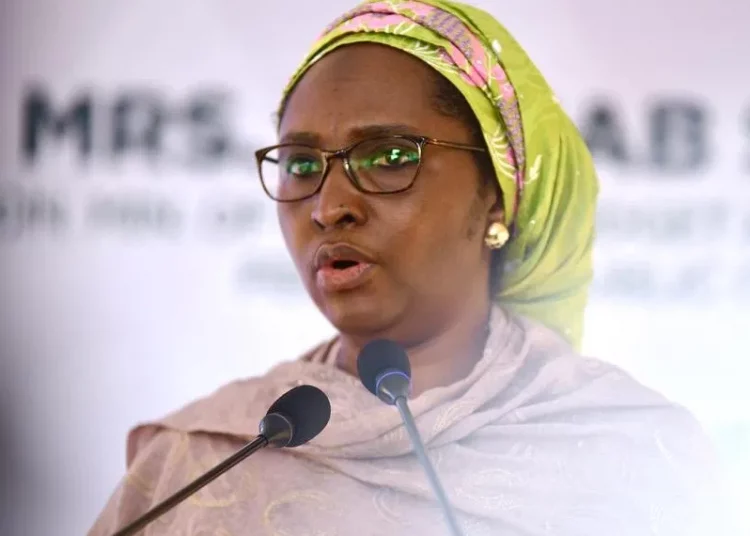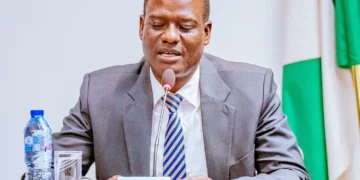Market volatility triggered by bulging insecurity on the domestic front, soaring global interest rate hikes and exchange rate management will soon force a significant number of investors to pull back from backing initial public offerings in Nigeria, thereby causing a possible decline in stock market listings and foreign reserve earnings.
Nigeria is already experiencing capital flight as the investment climate gets hostile, amidst interest rate hikes. Foreign direct investments into Nigeria dropped by 28 per cent to $1.6 billion in the first quarter of 2022.
According to the nation’s draft 2023-2025 Medium Term Expenditure Framework and Financial Strategy Paper (MTEF&FSP), investment in Nigeria is expected to be dragged down by multiple factors.
Minister of Finance, Budget and National Planning, Zainab Ahmed said investment, especially from foreign sources, “is expected to be dragged down by interest rate hikes in advanced economies, foreign exchange management concerns and other domestic challenges, including insecurity.”
The country’s external reserves have been declining for most of 2022 while the Naira continues to depreciate, and the country still operates multiple exchange rates. A further drop in foreign investments will affect the reserves.
The medium-term nominal consumption is projected at N121.93 trillion, N123.69 trillion and N125.45 trillion for 2023, 2024 and 2025, respectively.
Based on external happenings and rising inflation, net portfolio inflows to Nigeria are expected to drop by about 1 percent of the nation’s GDP in 2022. That figure is expected to further dip in 2023 based on the twin factors of pre-election uncertainties and worsening insecurity.
According to the National Bureau of Statistics (NBS), Nigeria experienced 81.46 per cent or $6.9 billion decline to foreign direct investment (FDI) between 2019 and 2022. Insecurity has so much created a gamut of uncertainty over the nation’s economy, especially in investable opportunities.
Nigeria is losing much revenue to the rising insecurity across board. The impact may be damning. Already, the federal government has shut down rail transportation across the country, including Lagos-Kano, Ajaokuta train services. That is a major drain to government finances.
As of last week, the government had lost N1.2 billion to the shutdown of Kaduna-Abuja train service alone. On the Warri-Itakpe standard gauge line, the Nigerian Railway Corporation (NRC) has stopped picking of passengers at the Ajaokuta station for security reasons.
Nigeria is seeking investments in the train services to create job opportunities and raise revenues. Nigeria’s rail system is being built through counterpart funding between Nigeria and the People’s Republic of China.
Professor of Economics at University of Benin, Hassan Ebhozele Oaikhenan said many foreign investors will not have anything to do with Nigeria whose leadership has failed to deal with insecurity that has caused national apprehension. “Insecurity is inimical to economic progress. In fact, insecurity and economic progress are not only contradictions in terms, they are strange bedfellows,” he said in an interview with our correspondent.
While the federal government looks to 2023, investments are tanking in Nigeria further depressing productivity, leading to further job losses and driving more people into poverty.
Board of directors of the Nigerian Economic Summit Group said there is hardly any need to itemise the adverse impact of insecurity on food prices, productivity, ease/cost of doing business, investor confidence and national pride.
Investment analyst, Maxi Sam Onwadunwa, said the factors that promote investment energy availability and cost, availability of investable funds, transportation of goods and services, security of lives and prosperity, access to foreign exchange, inflation, consumer purchasing power – are generally in the negative.
Onwadunwa said the implication is that foreign exchange will continue to be scarce and whatever income Nigeria gets is easily swallowed by debt servicing and payment of subsidy for imported PMS. “Because of elections and the expected change of government in 2023, there will be a lot of capital flight from Nigeria – from ‘frightened’ foreign investors,” he stated.
Prof Oaikhenan said the hostile nature of insecurity to investment, domestic and foreign, has the capacity to engender widespread, ripple effects that has the potential to propagate its deleterious consequences for the economy, by giving rise to and indeed exacerbating undesirable movements out of the country.
He said such key economic variables as “unemployment, exchange rate, inflationary pressures, collapsed manufacturing and industrial production, high and rising fiscal deficits, high and rising sovereign debt, domestic and foreign all combine to propagate the Nigerian economy as undesirable for investment.
With many businesses and companies shutting down, experts say Nigeria should least expect foreign investors to react positively. As it is, some companies in the oil Industry are selling off their on-shore assets, preferring to go off-shore with better security.
Insecurity: IGP Orders Watertight Security Around Schools, Hospitals
The NESG said that despite increased budgetary allocation to defense and national security, “the current state of insecurity is indicative of a nation under siege.” Nigerians now live in a permanent state of fear as bandits are able to hijack a train and kidnap dozens of passengers, overrun prisons and release hundreds of convicted criminals, and hold hundreds of kidnap victims for months at a time.
As a way forward, Mr Onwadunwa said government should quickly reverse the deteriorating operational investment by arresting insecurity and allowing local investment to begin to grow; reduce borrowing or renegotiate debt repayment and stop subsidy payment.
Besides that, experts also call for the emergence of the several exchange rates rather than one, and reduction in government spending on emoluments and overheads, while also introducing value for audits for capital expenditure.





